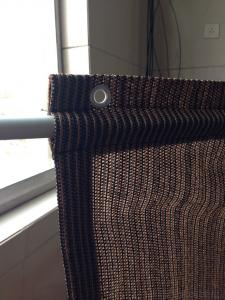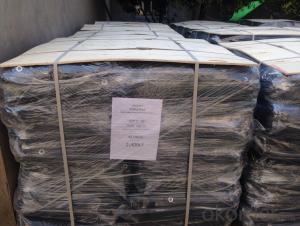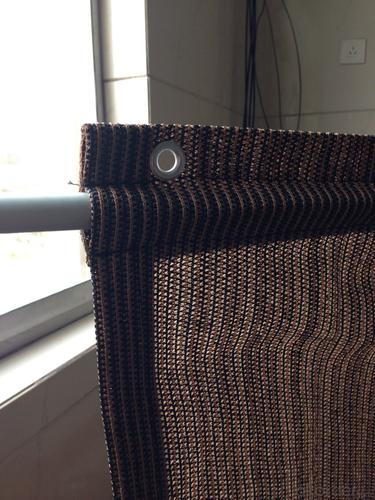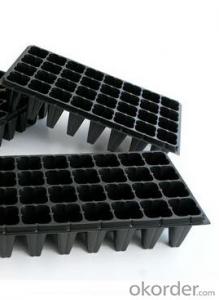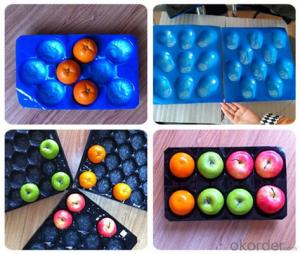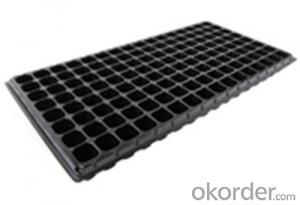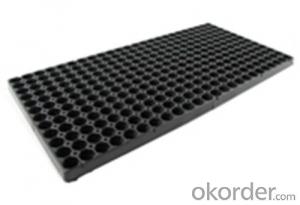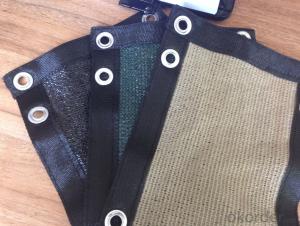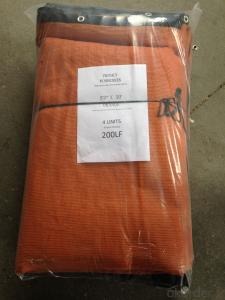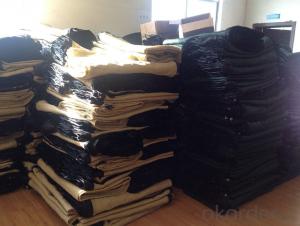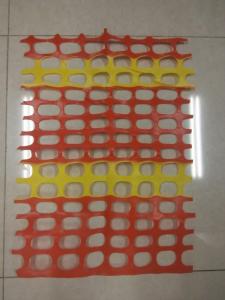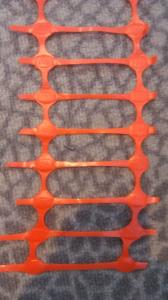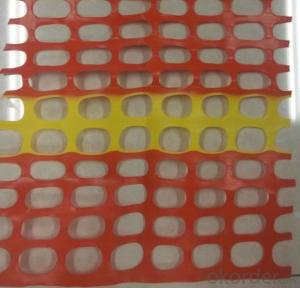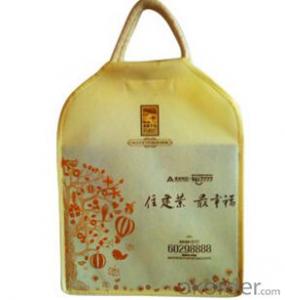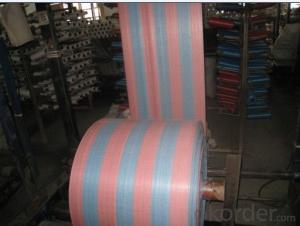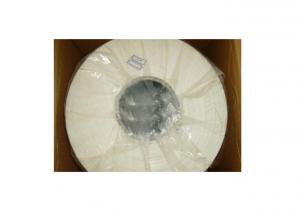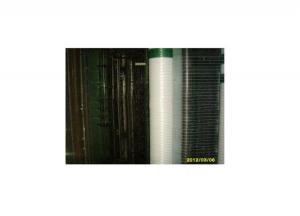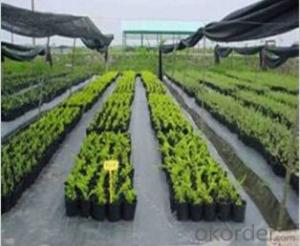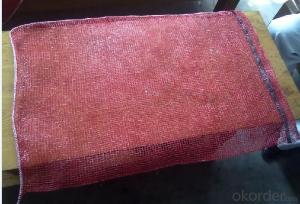Warning Fence Net for American Market
- Loading Port:
- China Main Port
- Payment Terms:
- TT OR LC
- Min Order Qty:
- -
- Supply Capability:
- -
OKorder Service Pledge
OKorder Financial Service
You Might Also Like
Choose CNBM
(1) Technical team: We have a professional technical team. Customer's sample is always welcomed.
(2) Professional factory: We are manufacturer, specializing in manufacturing plastic textile for 7 years; competitive price with good quality. With UV produced by Germany BASF Chemical Company, the products can be endured at least 3 years.
(3) Sample: We can give out sample in 5 days, but the shipment charge usually paid by your side, the fee of it will be rebound when we have formal order.
(4) Rapid response to your needs: We will answer within 24 hours. Welcome to contact us if you have any problems. We are looking forward to cooperating with you.
Specifications
1.Material:100% new HDPE,UV
2.Size: 1.75x15.30m
3.Useful life:3~5 year
4.Color: Dark,Dark Green,Blue,Orange etc.
5.MOQ: 1X20fcl
6.Delivery time:30 days
| |
|
| | |
Material | 100% new HDPE with UV,long service life |
| | |
Weight/sqm | 120~220gsm |
Size | Width:0.5m-3m, Length: as your request |
Samples | 1). sample time: Within 7-15 days. |
2). Sample charge: According to product details. | |
3). Sample refund: Negotiable | |
4). Send sample: Via TNT, UPS, FedEx, DHL Express | |
Sample is free for you to test the quality | |
Payment | T/T, L/C |
| |
| | |
| | |
| | |
| | |
| | |
| | |
| | |
| | |
- Q: How do you prevent ground cover plants from competing with nearby garden plants?
- One effective way to prevent ground cover plants from competing with nearby garden plants is by using mulch. Applying a layer of mulch around the garden plants helps suppress the growth and spread of ground cover plants, as it creates a barrier that limits their access to sunlight, nutrients, and moisture. Additionally, regular weeding and pruning of the ground cover plants can help maintain their growth in designated areas, preventing them from encroaching on the nearby garden plants.
- Q: Hi...What is the best way to clean melted plastic out of the bottom of a dishwasher?? Also how to get the smell of burnt plastic out of the dishwasher ??Thanks in advance :))...
- Get you a copper or wire brush and scrub off all the melted plastic on the circular heating coil at the bottom of the dishwasher. Try to get all the chunks and tidbits up after you finish scrubbing. Then run the dishwasher one time with dishwasher soap, and then take the filter out, typically by pulling up the surface of the dishwasher, and see if there are any deposits in the filter. It's good to service the filter regularly anyways so it doesn't clog on you from all kinds of junk that makes it way into the dishwasher. If the smell doesn't go away, it's likely you missed some, but after a couple of more washes, that should wipe out the smell and any residual toxins.
- Q: So is there any chance of chemicals (have tons under the sink (they are contrained of course)) to leak into a 2 liter plastic bottle of coca cola? Any chance of brain damage?Thanks
- It can't seep through plastic, no. Raid won't hurt anything that's properly concealed and covered. Even when you set off a Raid bug bomb, it just asks to carefully store your food items behind cupboard doors, your dog food was sealed. It should be fine.
- Q: what numbers are unsafe for plastic bottles?I know that 7 is bad and that is all what are all the other Numbers or brands?Also does anyone know what products contain the chemical phthalate?
- I threw ALL my plastic out and switched to glass just to be on the safe side. i now use Born Free glass bottles. Besides those plastic ones start to stink after a while no matter how much you wash them
- Q: What are the potential health risks associated with the use of plastic materials in agriculture?
- <p>There are several health concerns related to the use of agricultural plastic products. These include the potential for leaching of harmful chemicals into the soil and water, which can contaminate crops and enter the food chain. Additionally, the breakdown of plastics can release microplastics into the environment, which may be ingested by humans and animals, posing a risk to health. There's also the issue of pesticide residues on plastic films, which can be harmful if not managed properly. Furthermore, the disposal of plastic waste from agriculture can lead to environmental pollution and potential health hazards if not handled with care.</p>
- Q: How do you choose a ground cover that is heat-tolerant?
- When choosing a heat-tolerant ground cover, consider factors such as the plant's ability to withstand high temperatures, its water requirements, and its ability to thrive in your specific climate. Look for ground covers that are native or well-adapted to your region, as they are more likely to tolerate heat. It's also helpful to read plant labels or consult with local garden centers to identify heat-resistant varieties.
- Q: Can agricultural plastic products be used for poultry farming?
- Yes, agricultural plastic products can be used for poultry farming. Plastic materials such as feeders, waterers, and egg crates are commonly used in poultry farming to provide necessary equipment and infrastructure for the birds. These plastic products are durable, easy to clean, and can help maintain hygiene in the poultry farm.
- Q: Are nursery trays suitable for growing ferns?
- Yes, nursery trays are generally suitable for growing ferns. Ferns have shallow root systems and can be grown in nursery trays with good drainage. The trays provide adequate space for ferns to grow and can be easily moved or transplanted if needed.
- Q: How many cells or compartments are usually in a nursery tray?
- A nursery tray typically has around 50 to 72 cells or compartments.
- Q: This question asks for the most recent developments in the design and technology of agricultural plastic products.
- <p>The latest trends in agricultural plastic products design and technology include the use of biodegradable plastics, smart irrigation systems, and precision farming tools. Biodegradable plastics reduce environmental impact by breaking down naturally after use. Smart irrigation systems use sensors and data analytics to optimize water usage, reducing waste. Precision farming tools, such as drones and GPS-guided machinery, enhance crop monitoring and application accuracy. Additionally, there's a focus on developing stronger, more durable materials for long-lasting use and integrating IoT for real-time monitoring and management of agricultural resources.</p>
Send your message to us
Warning Fence Net for American Market
- Loading Port:
- China Main Port
- Payment Terms:
- TT OR LC
- Min Order Qty:
- -
- Supply Capability:
- -
OKorder Service Pledge
OKorder Financial Service
Similar products
Hot products
Hot Searches
Related keywords
